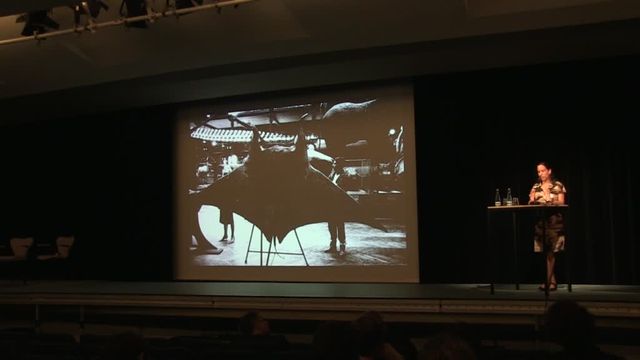Talk and film
Time’s Attack on the Rest of Life: Laboratory
With Henning Schmidgen, Jimena Canales, and Stephan Geene
Time as a governing system is manifest in all realms of life. In the global village of technological time everyone can receive information any time from every possible place. There are no limits to wireless communication. It forms the basis for financial markets and in turn permanently speeds up the world. The future is already being used up by the present and blocked by huge amounts of data, trash and debt. With real-time communication and global mobility two time resources were lost: our sense of the past, which lends us our identity, and the utopian potential of our future.
During the opening of “100 Years of Now,” four events examine the period of one hundred years as a space for historical imagination of varying dimensions and nexuses of time: Which forces shape the dominant concept of time in accelerated capitalism? How does it affect our perception and interpretation of the world? How is time produced in experiments and in the laboratory? How do historical events, texts and cultures become spaces we can experience? And how do other notions of time enable alternative courses of action?
How is time created in the laboratory and how does it have an impact on our lives? Our time today, increasingly accelerated, is not a natural given, but is also defined by science. Time-lapse films, ultra-centrifuges, and particle accelerators create a temporal regime to which our everyday lives are increasingly subjected. Communication on the world wide web, for example, is based on a communication system that was first established at CERN, the European Organization for Nuclear Research. Discussing Chris Marker’s short film La Jetée (The Jetty, Chris Marker, F 1962, 28 min.), brief lectures and a conversation will look at ways out of hyper-accelerated capitalism and for an outside of a now seemingly unavoidable temporal regime.
Biographies
Jimena Canales is the author of The Physicist and the Philosopher: Einstein, Bergson and the Debate That Changed Our Understanding of Time (Princeton University Press) and A Tenth of a Second: A History (University of Chicago Press). She currently holds the Thomas M. Siebel Chair in the History of Science at the University of Illinois-UC and was previously an Assistant and Associate Professor in History of Science at Harvard University and a senior fellow at the IKKM (Internationales Kolleg für Kulturtechnikforschung und Medienphilosophie). She also writes for wider audiences in WIRED magazine, for the BBC, for Aperture and Artforum.
Stephan Geene is a Berlin filmmaker and co-owner of the bookstore and publishing house b_books. His most recent films include Umsonst (2014) and After Effect (2008). Many of his theater plays have been staged in productions around the world, including at Theaterfestival München, Kunstverein München, Dramatisches Zentrum Wien and at Steirischer Herbst. Geene has curated exhibitions, organized film festivals and has written articles for Spex, Jungle World, Springerin, Texte zur Kunst and Tageszeitung. He teaches the theory and history of television at Beuth Hochschule Berlin.
Henning Schmidgen is professor for the theory of media worlds at Bauhaus-Universität Weimar. He studied psychology, philosophy, and linguistics in Berlin and Paris, was a researcher at the Max-Planck-Institut für Wissenschaftsgeschichte, and professor for media aesthetics at Universität Regensburg. He has written numerous publications on the history of experimental life sciences, the philosophy and aesthetics of machines and actor-network theory. Recently publications include: Hirn und Zeit. Die Geschichte eines Experiments, 1800-1950 (Berlin, 2014) and Bruno Latour in Pieces. An Intellectual Biography (New York, 2015).
